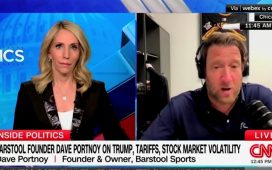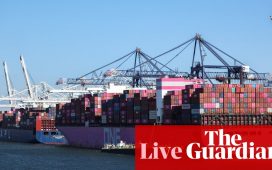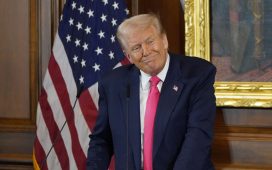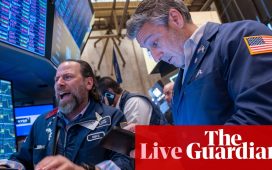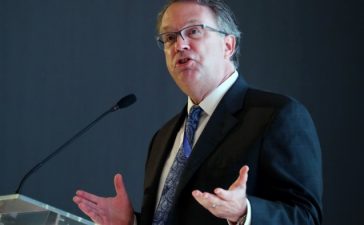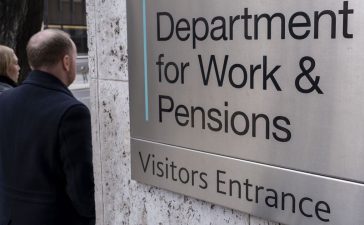
© Reuters. FILE PHOTO: AI Artificial Intelligence words are seen in this illustration taken, May 4, 2023. REUTERS/Dado Ruvic/Illustration/File Photo
By Paul Sandle, Martin Coulter
BLETCHLEY PARK, England (Reuters) -China agreed to work with the United States, European Union and other countries to collectively manage the risk from artificial intelligence at a British summit on Wednesday aimed at charting a safe way forward for the rapidly evolving technology.
Some tech executives and political leaders have warned the rapid development of AI poses an existential threat to the world if not controlled, sparking a race by governments and international institutions to design safeguards and regulation.
In a first for Western efforts to manage its safe development, a Chinese vice minister joined U.S. and EU leaders and tech bosses such as Elon Musk and ChatGPT’s Sam Altman at Bletchley Park, home of Britain’s World War Two code-breakers.
More than 25 countries present, including the United States and China, as well as the EU, signed a “Bletchley Declaration” saying countries needed to work together and establish a common approach on oversight.
The declaration set out a two-pronged agenda focused on identifying risks of shared concern and building scientific understanding of them, while also developing cross-country policies to mitigate them.
Wu Zhaohui, China’s vice minister of science and technology, told the opening session of the two-day summit that Beijing was ready to increase collaboration on AI safety to help build an international “governance framework”.
“Countries regardless of their size and scale have equal rights to develop and use AI,” he said.
Fears about the impact AI could have on economies and society took off in November last year when Microsoft-backed OpenAI made ChatGPT available to the public.
Using natural language processing tools to create human-like dialogue, it has stoked fears, including among some AI pioneers, that machines could in time achieve greater intelligence than humans, leading to unlimited, unintended consequences.
Governments and officials are now trying to chart a way forward alongside AI companies which fear being weighed down by regulation before the technology reaches its full potential.
“I don’t know what necessarily the fair rules are, but you’ve got to start with insight before you do oversight,” the billionaire Musk told reporters, adding that a “third-party referee” could be used to sound the alarm when risks develop.
While the European Union has focused its AI oversight on data privacy and surveillance and their potential impact on human rights, the British summit is looking at so-called existential risks from highly capable general-purpose models called “frontier AI”.
Mustafa Suleyman, the cofounder of Google (NASDAQ:) Deepmind, told reporters he did not think current AI frontier models posed any “significant catastrophic harms” but said it made sense to plan ahead as the industry trains ever larger models.
CODE-BREAKER VENUE
The summit is the brainchild of British Prime Minister Rishi Sunak, who wants to carve out a post-Brexit role for his country as an intermediary between the economic blocs of the United States, China and the EU.
British digital minister Michelle Donelan said it was an achievement just to get so many key players in one room. She announced two further AI Safety Summits, one to be held in South Korea in six months and another in France six months after that.
“For the first time, we now have countries agreeing that we need to look not just independently but collectively at the risk around frontier AI,” Donelan told reporters.
Just as tech companies compete for dominance in AI, governments are jostling to lead the way on regulation.
China is a key participant at the summit, given the country’s role in developing AI. But some British lawmakers have questioned whether it should be there given the low level of trust between Beijing, Washington and many European capitals when it comes to Chinese involvement in technology.
The United States made clear on the eve of the summit that the call to Beijing had very much come from Britain, with its Ambassador to London, Jane Hartley, telling Reuters: “This is the UK invitation, this is not the U.S.”
U.S. Vice President Kamala Harris’s decision to give a speech in London on Wednesday about her government’s response to AI, and hold some meetings with attendees away from the summit, meaning they may have to leave early, also raised some eyebrows.
Sachin Dev Duggal, founder of London-based AI firm Builder.ai said it risked undermining the event’s core focus, while some lawmakers from Sunak’s Conservative Party suggested Washington was trying to overshadow his summit.
British officials denied that, saying they wanted as many voices as possible.
Just days after U.S. President Joe Biden signed an executive order on AI, his government used the British summit to announce it would launch a U.S. AI Safety Institute.
Harris will meet Sunak later on Wednesday, including for dinner, and attend the summit’s second day on Thursday.

